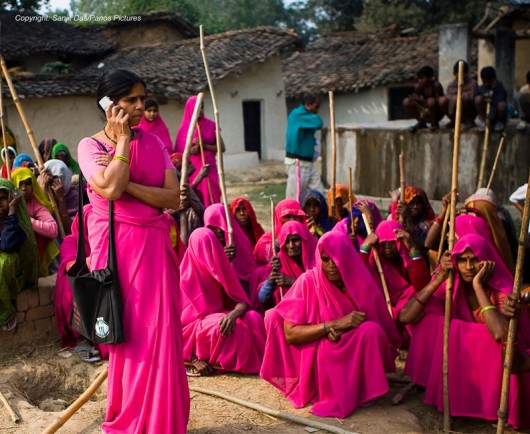Hello and thanks for reading my very first blog. Not long ago I also wrote my first ever tweet at the Open Up! conference on the 13th November which promoted open governance using technology in London’s tech city - let’s hope this blog goes down as more of a success than my tweeting prowess. Following my inaugural tweet to my 6 devoted followers, I was overshadowed by the success of a fellow Twitter newby on the same day; DFID’s Secretary of State @JustineGreening followed my lead with booming success – having almost 1,000 followers after her very first tweet.
Since joining DFID in September this year as part of the shiny new Graduate Development Scheme I have learnt an incredible amount and been introduced to a host of new experiences – joining twitter being one of the least impressive. Having previously worked elsewhere in the civil service I have found moving from being a statistician working on databases and programming in the Ministry of Justice to working on policy and managing events (working with written information!) in DFID was a shock to the system to say the least!
From my very first task looking into the use of technology in development, cowering in the safety of statistics, I was struck by the evidence in front of me. The initial statistic that really got me thinking was that:
Throughout the developing world there are 300 million fewer female mobile phone subscribers than male (GSMA, 2010).

This means that in the developing world a woman is 21% less likely to own a mobile phone than a man. The reasons for this I found were numerous and woven throughout are the existing barriers for women and girls which permeate the developing world but also to some extent the developed. Having previously studied violence against women in the UK I found this finding particularly poignant:
74% of married women at the bottom of the pyramid (BoP) - those living on less than US$75 a month - surveyed by GSMA’s mWomen (2012) did not want a mobile phone as their husbands would not allow it.
I will be writing about issues as I discover them, from the perspective of someone who is not an expert but believes that they are important and that the discussion is worth having. I will be writing largely about the use of technology in development, the impact that it can have to empower citizens, to improve service delivery, to assist in free and fair elections … the list will go on… but also learning from the failures of the use of technology in development. I will write a special post on the Open Up! conference discussing using digital tools including mobile and open source technology to empower citizens and encourage open governance. I will write about gender and technology as I discover more – I can think of numerous positive examples of programmes both within DFID and outside that have empowered women using digital tools and look forward to starting a conversation in a later post!

4 comments
Comment by Linda_Margaret (@Linda_Margaret) posted on
This is a fascinating topic and one that is close to my heart. I'm very interested to hear more - let me know if I can ever be of help in your research. I'm watching our Google Analytics carefully now to see what sort of access people in developing countries experience when it comes to our data, and your research would certainly help me connect some dots.
Comment by Rosie Fisher posted on
Thanks for your comment Linda, you may find this recently published report by Intel and Dalberg useful - entitled 'Women and the Web' found here http://newsroom.intel.com/community/intel_newsroom/blog/2013/01/10/intel-announces-groundbreaking-women-and-the-web-report-with-un-women-and-state-department
It seems a great amalgamation of what's already out there with a few new bits thrown in too. InternetWorldStats.com would also be helpful to get an idea of access in developing countries to you data. If you take a look at my latest blog I go into more detail about some of the examples of technology for accountability and transparency. I'm looking to explore more in-depth the issues surrounding technology and gender. There are so many things to discuss I just don't know where to start!
Comment by Linda_Margaret posted on
Thank you.
Comment by Priti Sharma posted on
Hii Rosie ,
Your work is worth appreciation . Awesome !